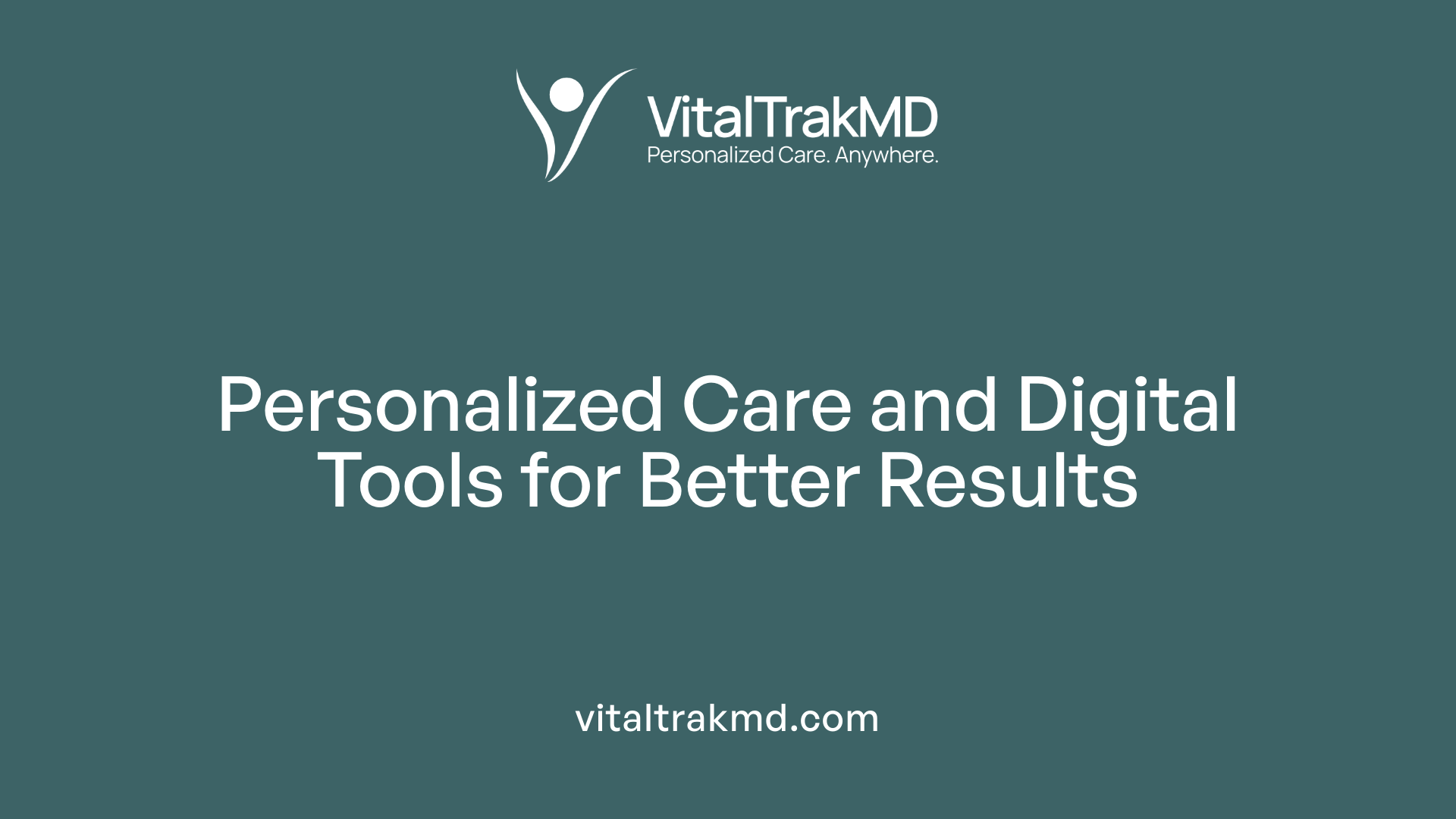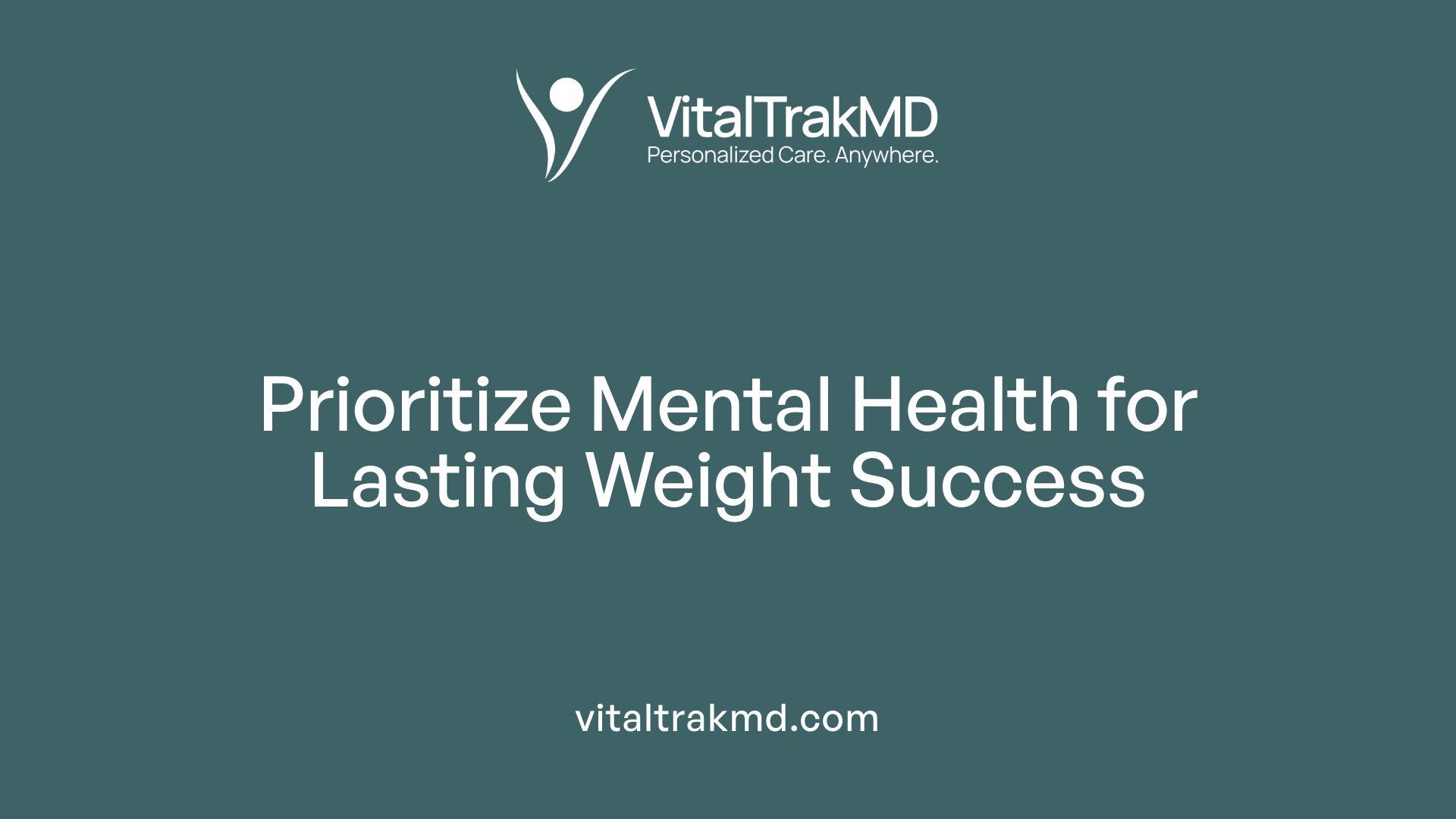The Role of Hybrid Programs in Encouraging Daily Movement

The Synergy of In-Person and Virtual Wellness
In an era defined by hybrid work environments and evolving healthcare delivery, wellness programs have adapted to meet the needs of diverse populations seeking sustainable weight loss and improved physical activity. Hybrid programs that blend face-to-face interaction with digital health tools offer an innovative approach to encourage daily movement and holistic well-being. This article explores how such programs integrate effective weight management strategies, mental health support, and technology-driven personalization to overcome barriers and inspire healthier lifestyles.
Integrating Hybrid Delivery Models for Effective Weight Loss

What are the most effective wellness programs to support weight loss?
Effective weight loss programs offer a holistic approach combining diet, exercise, and behavioral therapy. They typically promote a calorie-reduced balanced diet—often aligned with Mediterranean or plant-based styles—alongside increased physical activity, such as 150 minutes of aerobic exercise weekly. Behavioral counseling supports sustainable lifestyle changes, helping participants develop habits that promote long-term success.
Structure of hybrid wellness programs
Hybrid wellness programs mix in-person and virtual components to maximize accessibility and effectiveness. For example, the Why WAIT program integrates face-to-face sessions at the beginning and end with virtual sessions in between, facilitating consistent progress checks and personalized guidance. Most hybrid interventions complement group counseling with telehealth tools like phone calls, text messages, or mobile apps, enhancing communication and accountability.
Effectiveness of hybrid versus in-person and virtual models
Research shows hybrid models are as effective as purely in-person or fully virtual programs in promoting weight loss and improving glycemic control. Participants in the Why WAIT study achieved an average weight reduction of 7-8% and significant A1C improvements across all delivery methods. Hybrid formats address common virtual challenges such as physical health assessments and accountability, while offering greater flexibility compared to solely on-site programs.
Key components: exercise, diet, behavioral therapy
Successful multidisciplinary programs include regular supervised exercise, structured nutrition plans, and behavioral therapy. This triad helps participants reduce weight, improve metabolic markers, and establish enduring healthy habits. Combining these elements within hybrid delivery models supports engagement and retention by offering adaptable and convenient support.
Results from multidisciplinary intervention programs
Studies confirm that hybrid weight management interventions can produce clinically meaningful outcomes, including average weight loss ranging from 3.9 to 8.2 kg, reductions in BMI (~0.58 kg/m²), and decreased waist circumference (~2.25 cm). Enhanced physical activity and improved mental well-being are also common benefits. The broad geographic adoption of these approaches underlines their global applicability.
| Aspect | Description | Example / Data |
|---|---|---|
| Program Structure | Combination of in-person and virtual sessions | Why WAIT uses initial & final face-to-face with interim virtual sessions |
| Diet & Exercise | Calorie reduction, aerobic exercise, behavioral counseling | 150 min aerobic exercise/week, Mediterranean diet |
| Effectiveness | Comparable weight loss across hybrid, virtual, and in-person models | 7-8% average body weight loss; improved A1C levels |
| Health Outcomes | Weight, BMI, waist circumference reductions | Weight loss 3.9–8.2 kg; BMI ↓ ~0.58 kg/m²; waist ↓ 2.25 cm |
| Behavior & Support | Behavioral therapy and accountability measures | Telehealth support, group counseling, app engagement |
Hybrid wellness programs, when well-designed and inclusive of core lifestyle elements, present a promising strategy for effective weight loss and metabolic health improvements in diverse settings.
Enhancing Outcomes Through Care Programs and Personalized Support

How can care programs enhance weight loss outcomes?
Care programs play a vital role in boosting the success of weight loss efforts by combining personalized guidance with multifaceted support. They incorporate evidence-based strategies that include behavioral counseling, pharmacotherapy, and lifestyle changes tailored to individual and cultural needs. This personalized approach promotes better adherence and more sustainable results.
Digital tools and telehealth platforms have revolutionized access to effective weight management, especially benefiting underserved communities. These technologies facilitate real-time self-monitoring, virtual coaching, and ongoing engagement through apps and regular follow-ups. Telehealth increases flexibility and accountability, which are key for maintaining motivation.
Pharmacotherapy, particularly the use of GLP-1 receptor agonists, when combined with structured behavioral interventions, has been shown to enhance weight loss outcomes. This comprehensive approach addresses both biological and behavioral aspects of obesity, leading to higher and sustained weight reductions.
Short-term, multidisciplinary care programs—such as 12-week interventions offering nutritional education, physical activity guidance, and psychological support—demonstrate clinically significant weight loss while achieving strong participant retention. These multicomponent programs effectively integrate medication, counseling, and lifestyle changes to optimize results.
Overall, the synergy of personalized care plans, innovative digital health solutions, medication support, and community-based models creates a powerful framework for successful weight management.
Mental Well-being: A Cornerstone of Sustainable Weight Management

What role does mental well-being play in successful weight loss programs?
Mental well-being is central to the success of weight loss programs because it directly influences motivation and the ability to stick with lifestyle changes. When mental health is stable or improving, individuals tend to achieve greater weight loss and maintain it better over time. Conversely, poor mental health — including heightened stress, anxiety, or depression — often leads to emotional eating, disturbed sleep, and hormonal imbalances like elevated cortisol levels, all of which can derail weight management efforts.
How are stress and emotional eating connected?
Stress triggers emotional eating by activating brain pathways that encourage high-calorie, comfort food consumption. This behavior serves as a coping mechanism but ultimately undermines weight loss goals. Elevated stress also reduces energy levels and disrupts sleep, compounding difficulties in adhering to exercise and healthy eating routines.
Why is mindfulness and therapy support important?
Incorporating mindfulness practices and therapy support into weight management programs helps individuals better regulate their emotions and reduce stress-related triggers for overeating. Mindfulness encourages awareness of hunger cues and emotional states without judgment, fostering healthier food choices. Therapy, including cognitive-behavioral approaches, equips participants with coping skills to overcome mental barriers to lifestyle change.
How is mental health integrated in hybrid weight management programs?
Hybrid programs combine virtual and in-person sessions, offering accessible mental health tools like mindfulness resources and therapy support alongside physical health interventions. This integration enhances emotional well-being and helps sustain adherence to dietary and exercise plans. By providing flexible mental health resources tailored to diverse schedules, hybrid models address the psychological component of weight management effectively, promoting both physical and mental health in a comprehensive manner.
Innovations and Trends Shaping Hybrid Weight Management Programs

What are the latest trends in wellness programs focused on weight management?
Digital health tools and telemedicine integration stand at the forefront of current hybrid weight management programs. These platforms enable virtual counseling, remote monitoring, and real-time behavioral support, making care more flexible and accessible. Telehealth options such as video sessions, phone calls, and mobile health apps are commonly paired with in-person visits to create a balanced hybrid experience.
Personalized approaches increasingly cater to younger demographics like Gen Z and millennials. Programs utilize data-driven insights and tailored health plans that resonate with these groups' preferences for digital engagement, personalized feedback, and flexible options. This customization helps improve participation and long-term adherence.
The incorporation of pharmacotherapy, particularly GLP-1 receptor agonists, into wellness benefits is becoming more prevalent. Employers and insurers are integrating evidence-based obesity medications into their health plans to complement lifestyle interventions, reflecting a holistic strategy for weight management that recognizes obesity as a chronic disease.
Community-building activities and flexible program options enhance engagement and motivation. Virtual fitness challenges, wellness socials (like trivia nights), and flexibility such as on-demand workouts support varied schedules and encourage daily activity. These elements foster social connection and emotional well-being, which are essential for sustained health improvements.
Collectively, these trends highlight a shift toward multi-faceted, integrated weight management solutions blending technology, personalized medicine, and behavioral science to deliver effective, accessible care for diverse populations.
Fostering Daily Movement and Community Engagement in Hybrid Workplaces

Role of wellness challenges and fitness activities
Wellness programs in hybrid workplaces often incorporate virtual fitness challenges to promote daily physical activity. These challenges unite employees around shared goals, encouraging consistent movement regardless of their location. By fostering friendly competition and camaraderie, fitness activities help employees maintain healthy habits and stay motivated.
Importance of community-building in hybrid teams
Community-building activities such as virtual coffee chats and trivia nights play a vital role in creating social connections among dispersed team members. These interactions foster a sense of belonging and collaboration, counteracting the isolation that can come with remote work. Strong social ties built through these programs support overall mental well-being and a positive work culture.
Mental health resources and flexible workout options
Providing accessible mental health tools, including mindfulness resources and therapy support, is crucial for emotional well-being in hybrid environments. Additionally, offering flexible wellness options—like on-demand workouts and personalized exercise plans—accommodates diverse schedules and preferences. This flexibility enables employees to integrate movement into their daily routines effectively.
Leadership and organizational support for wellness
Successful wellness programs depend heavily on strong leadership involvement and inclusive, user-friendly platforms. Leaders who prioritize employee well-being foster higher engagement and participation. Organizations that allocate adequate resources and promote wellness initiatives see improved collaboration, reduced burnout, and overall healthier workforces, resulting in greater productivity and satisfaction.
Harnessing Hybrid Models for Lifelong Movement and Wellness
Hybrid wellness programs represent a dynamic paradigm that successfully merges the personal touch of face-to-face care with the accessibility and flexibility of digital health. By combining comprehensive weight loss strategies, personalized care, mental health support, and community-building activities, these programs foster daily movement and sustained healthy behaviors in diverse populations. As workplaces evolve, embracing such hybrid models ensures inclusivity and engagement while addressing both physical and emotional well-being. The integration of innovative technologies and multidisciplinary approaches positions hybrid programs as pivotal for lasting weight management success and the enhancement of overall health in the modern era.
References
- Hybrid model of intensive lifestyle intervention is potentially ...
- Potential role of hybrid weight management intervention
- Winning Wellness Programs for Hybrid Teams
- Improving Employee Mental Wellbeing through Hybrid ...
- The Why of Wellness - How Programs Work and Why They' ...
- Choosing a Safe & Successful Weight-loss Program - NIDDK
- The 5 Best Weight Loss Programs in 2025
- Steps for Losing Weight | Healthy Weight and Growth
- Long‐Term Weight Loss Outcomes in a Virtual Weight Care ...
Recent articles
Want to Feel Better and Live Healthier?
Join hundreds of patients taking control of their health with personalized care that fits their life – not the other way around.
Rated 4.8/5 by 32+ customers







